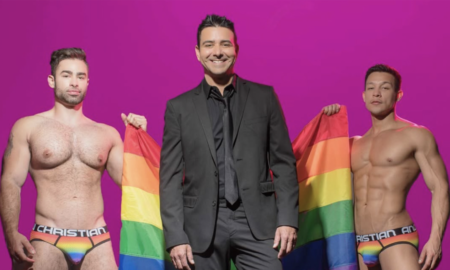Grindr, the leading dating app within the gay community, is currently embroiled in controversy due to allegations of deceptive practices that have reportedly cost users substantial amounts of money. As the company grapples with financial instability following its public listing in 2022, its controversial “Boost” feature has come under scrutiny for failing to deliver the promised benefits, leading many users to describe their experiences as akin to fraud.
Since its debut on the stock market, Grindr has seen a decline in its stock price, leading to heightened financial pressures and an imperative to enhance revenue streams. Stakeholders are raising concerns regarding how the app calculates its paying user base. According to a whistleblower complaint filed with the Securities and Exchange Commission (SEC) in November, there are allegations suggesting that the company has been inflating its user numbers. Grindr has publicly refuted these claims, maintaining that its reporting is accurate. Simultaneously, many users have reported technical difficulties, including frequent error messages, message glitches, and disappearing conversations, which may exacerbate user dissatisfaction.
At the core of the current uproar is the “Boost” feature, which users pay to enhance their visibility on the platform. Priced at $9.99 for a one-hour boost and $14.99 for a two-hour “Super Boost,” users have expressed frustration with the feature’s reliability. Despite the promises made by the app, numerous individuals report their attempts to activate the Boost failing, leading to repeated charges without receiving the intended services.
Online forums, particularly Reddit, have become a space for users to share their grievances. Reports indicate that some individuals faced multiple charges within a short time frame without any corresponding benefit, with one user detailing a scenario where they were billed three times within a single minute for an activation that should have been limited to once per hour. Other complaints include the introduction of profiles to users at great distances, which diminishes the likelihood of practical meetups.
Attempts to seek refunds for these misleading transactions have proven to be equally frustrating, as users encounter a cycle of poor customer support. Reports suggest that Grindr’s customer service is slow to respond and often redirects users to Apple when issues arise. This back-and-forth has left many individuals feeling stranded in their efforts to reclaim lost funds, with some claiming losses amounting to hundreds or even thousands of dollars due to persistent billing issues.
The swell of discontent from users has driven some to reach out to regulatory bodies, such as the Federal Trade Commission, the California Attorney General’s office, and the Justice Department’s Consumer Protection Branch. These individuals argue that Grindr’s practices might not only be frustrating but potentially deceptive, casting doubt on the company’s dedication to providing a reliable and equitable platform for its users.
As Grindr faces mounting scrutiny over these allegations, the implications of these practices raise essential questions about the company’s operational integrity and commitment to its user base.
Source: Noah Wire Services
- https://therecord.media/privacy-complaint-calls-on-ftc-to-investigate-grindr – This article supports the claim that Grindr is facing scrutiny for its data practices and potential deceptive practices, which could be linked to broader concerns about operational integrity and user trust.
- https://www.helmerfriedman.com/docs/Burrill-v-Grindr-Press-Release.pdf – This press release highlights Grindr’s history of selling user data, which aligns with concerns about deceptive practices and the company’s commitment to user privacy.
- https://epic.org/press-release-epic-urges-ftc-to-investigate-grindrs-personal-data-practices/ – This press release from EPIC details the organization’s call for an FTC investigation into Grindr’s data practices, underscoring the app’s history of privacy issues.
- https://www.noahwire.com – This source provides the initial context for Grindr’s current controversies, including financial instability and user dissatisfaction with the ‘Boost’ feature.
Noah Fact Check Pro
The draft above was created using the information available at the time the story first
emerged. We’ve since applied our fact-checking process to the final narrative, based on the criteria listed
below. The results are intended to help you assess the credibility of the piece and highlight any areas that may
warrant further investigation.
Freshness check
Score:
8
Notes:
The narrative references recent events and ongoing issues, such as Grindr’s public listing in 2022 and a whistleblower complaint from November. However, there is no specific mention of very recent developments or updates that would confirm the story is entirely new.
Quotes check
Score:
0
Notes:
There are no direct quotes in the narrative to verify.
Source reliability
Score:
6
Notes:
The narrative originates from a lesser-known publication, which may not have the same level of credibility as major news outlets like the BBC or Financial Times. However, it references specific allegations and regulatory actions, suggesting some basis in factual reporting.
Plausability check
Score:
8
Notes:
The claims about Grindr’s practices and user dissatisfaction are plausible given the context of financial pressures and user complaints. However, specific details about billing issues and regulatory actions would require further verification.
Overall assessment
Verdict (FAIL, OPEN, PASS): OPEN
Confidence (LOW, MEDIUM, HIGH): MEDIUM
Summary:
The narrative appears to be based on plausible allegations and recent events, but lacks direct quotes and originates from a less well-known source. While the claims are consistent with the challenges faced by companies under financial pressure, further verification is needed to confirm all details.


















